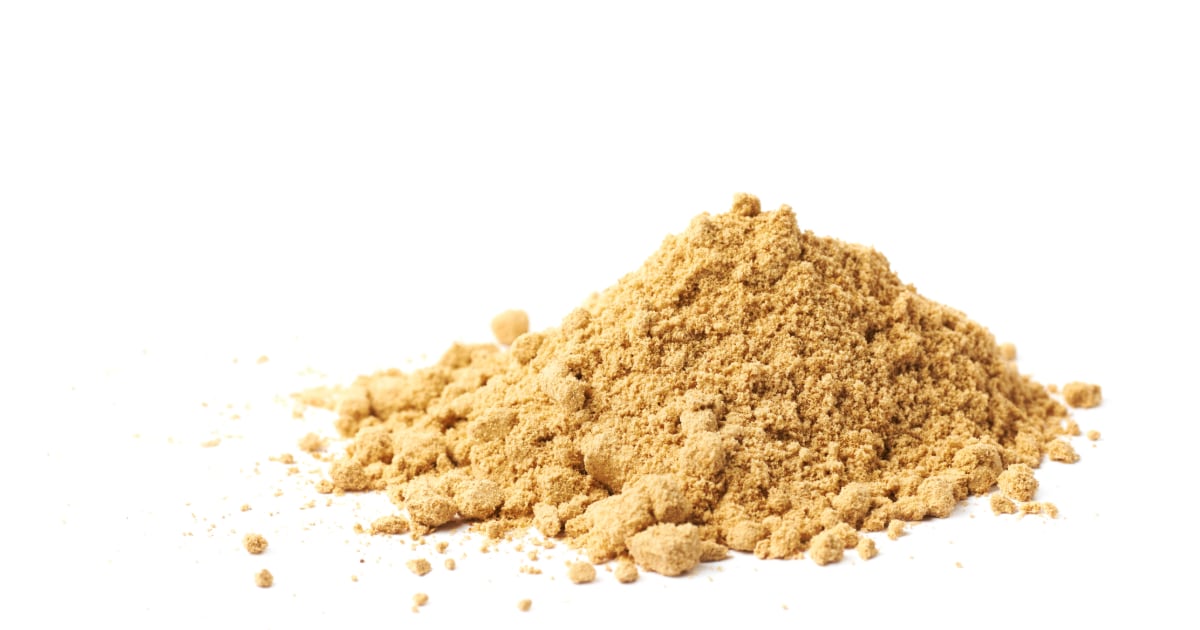Ginger powder is a staple in many cuisines and homes for its uniquely pungent, sweet, and spicy flavor. But like other ground spices, ginger powder's flavor fades over time. So can ginger powder go bad?

The short answer is no - ginger powder does not expire in the sense of becoming spoiled or unsafe to eat. However, ginger powder will lose potency and flavor over time. With proper storage, ground ginger powder can maintain its best quality for around 2-4 years.
How to Store Ginger Powder
Proper storage is key to preserving ginger powder's freshness and preventing it from losing its signature spicy kick. Here are some tips for storing ginger powder:
- Keep ginger powder in an airtight container. Exposure to air causes spices like ginger powder to lose their volatile oils, which provide much of their flavor. Use containers with tight-fitting lids.
- Store in a cool, dark place. Heat, light, and humidity can all accelerate spice staleness. The ideal storage spot is a dark, dry pantry or cupboard away from heat sources like the oven or stove.
- Buy ginger powder in small batches. Ground spices lose flavor faster once opened. Buying ginger powder in small amounts ensures you can use it up while it's still freshly potent.
- Don't refrigerate. Contrary to popular belief, the cold temperature of the fridge can cause moisture buildup on spices.
Key Takeaway: Store ginger powder in an airtight container in a cool, dry place away from light and heat. Refrigeration is not necessary and can encourage moisture buildup.
How Long Does Ginger Powder Last?
So how long is ginger powder good for? With optimal storage conditions, here are the general timelines for maximum freshness:
- Unopened: 3-4 years past the printed expiration or best-by date.
- Opened: 2-3 years (less if not stored in an airtight container).
The expiration date on the bottle or bag is simply the manufacturer's guarantee of prime quality and flavor. Ginger powder doesn't suddenly become harmful or spoiled after that date, but its intensity will slowly fade.
If you've had a container of ginger powder for over 3-4 years, it's probably best to replace it with a fresh batch. But always rely on your senses, not the calendar, to determine if your spices need restocking.
How to Tell If Ginger Powder Is Bad
Because ginger powder doesn't truly expire, you need to rely on your senses to detect staleness. Here are some signs your ginger powder may be past its prime:
- Faded color: Fresh ginger powder should be a light tan color. Older ginger powder oxidizes and darkens over time.
- Dull or musty aroma: Give your ginger powder a sniff - it should smell strong, sharp, and spicy, not weak or dusty.
- Loss of flavor: Do a taste test - stale ginger powder will lack pungency and leave a flat taste.
- Clumping: Moisture causes ginger powder to clump and harden. Discard clumpy ginger powder.
If your ginger powder shows signs of diminished fragrance, changed color, lackluster taste, moisture damage, or is more than 3-4 years old, it's time to replace it. Don't worry - ginger powder doesn't pose health risks when stale, it just won't provide the intended flavor.
Key Takeaway: Signs of stale ginger powder include faded color, lack of aroma, dull taste, moisture clumping, and age over 3-4 years. Stale ginger powder is safe to ingest but lacks flavor.
Substituting Fresh Ginger for Ground
Many recipes call specifically for fresh ginger. Can you substitute ground ginger powder instead?
You can replace fresh ginger with ginger powder, but keep in mind:
- Use less powdered ginger. Ground ginger is much more concentrated. Use just 1/4 to 1/2 teaspoon ginger powder per tablespoon grated fresh ginger.
- Add it at the end. The volatile oils in fresh ginger infuse dishes as they cook. But ginger powder loses flavor with prolonged cooking, so add it as a finishing touch.
- Account for texture. Fresh ginger adds fibrous texture, while ginger powder only contributes flavor. Adjust other ingredients if needed.
- Complement other flavors. Fresh ginger stands out on its own. Ginger powder blends more seamlessly into complex flavors.
- Opt for fresh ginger when possible. Fresh ginger simply delivers brighter, more nuanced flavor in most dishes. Powdered ginger shines in baked goods.
With the right precautions, ginger powder can pinch hit for fresh ginger in a recipe bind. But fresh ginger is still ideal for achieving maximum flavor.
FAQs
Can you freeze ginger powder?
Freezing is not necessary for ginger powder. The ideal storage is in an airtight container in a cool, dark place like the pantry.
What's the difference between ginger powder and grated ginger?
Grated ginger comes from fresh unpeeled ginger root that is chopped into fine shreds. It is used to add fresh ginger flavor and fibrous texture to dishes. Ginger powder is made from dried, ground ginger root and only adds concentrated ginger flavor.
Does dehydrated ginger go bad?
Like ginger powder, dehydrated ginger does not truly expire but will lose potency over time, around 2-4 years. Store in an airtight container away from moisture, light, and heat.
Can old ginger make you sick?
Ginger does not become toxic or Unsafe when stale. However, moldy ginger should not be consumed, as mold can cause illness.
What happens if you eat expired ginger?
Nothing harmful - ginger powder simply loses its pungency over time. Expired ginger powder is still safe to eat but will not provide optimal ginger flavor.
Conclusion
While ground ginger powder doesn't truly spoil, it does lose its signature sharp bite over time.
Knowing how to maximize ground ginger's shelf life ensures you can keep enjoying its spicy aroma and flavor in your cooking. With the right storage methods, you can easily keep ginger powder fresh for years to come.

